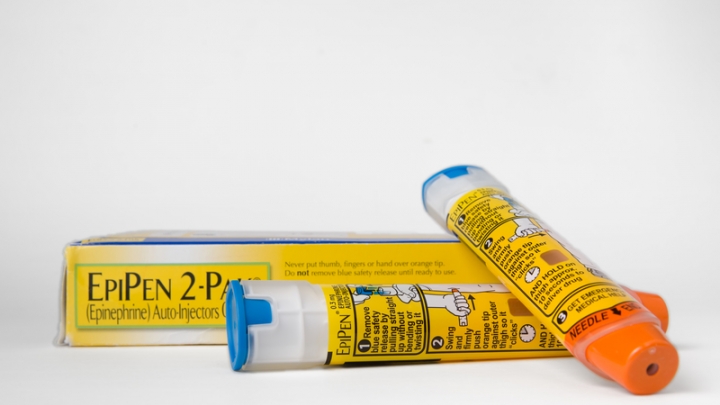(RxWiki News) For the 1 in 13 children who have food allergies, being prepared can make all the difference.
Allergic reactions can be as mild as a rash or itchy skin, but some can be serious. An allergic reaction serious enough to be life-threatening is called as anaphylaxis.
Anaphylaxis symptoms can develop quickly but may actually start off as a rash or a "strange feeling." These symptoms can quickly lead to more serious problems such as:
- Trouble breathing
- Tightening of the throat
- Dizziness
- Fainting
- Racing heart beat
Allergies to medications like penicillin; insect bites and stings like bee stings; and foods like peanuts can lead to anaphylaxis. Treatment includes epinephrine and emergency medical care.
Several epinephrine options are available, including the following brand names:
- EpiPen and EpiPen Jr
- Adrenaclick
- Auvi-Q
- Symjepi (prefilled epinephrine syringe)
There is also epinephrine Injection, which is the generic version of EpiPen. Speak with your child's pediatrician about the best option for your child.
If your child has a severe allergy, be sure to speak with his or her teacher and school nurse and develop an emergency plan.
When sending your child to school with epinephrine, be cautious about the expiration date. Periodically check to make sure the medication is in date and is being stored according to the manufacturer's storage instructions.
The storage and expiration date are very important because the medication may not work as it should (due to a decrease in strength) if it has expired or was not stored properly. These conditions may mean that the medication is no longer safe to use.
Common side effects of epinephrine may include but are not limited to the following:
- Anxiety
- Weakness
- Dizziness
- Sweating
- Heart racing
- Paleness
- Nausea and vomiting
- Headache
Ask your healthcare provider any questions you have about anaphylaxis and the recommended treatment.









